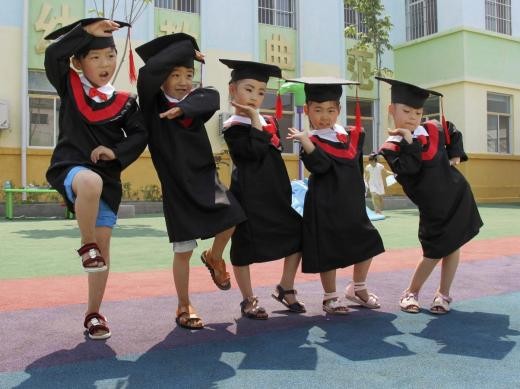Almost half--41.3 percent--of the nearly 2,000 respondents based in Beijing who participated in a survey conducted by the Social Survey Center of China Youth Daily on occupational prestige said that their children are free to choose whatever kind of profession they would be interested in when they grow up.
A mere 23.5 percent of the respondents said that they desire their children to take the same career path they pursued themselves. These include those respondents who are doctors, lawyers, senior technicians and university professors.
It could be interesting to note that these particular respondents ranked their own profession either as average or low in terms of occupational prestige; yet, they still want their children to follow their footsteps.
As for the 35.2 percent of respondents, they said that it would be difficult for them to tell anything about the decisions their children might make once they are ready to get a job.
The survey also revealed the specific jobs that garnered the highest prestige level from the respondents. These occupations, in no particular ranking, are engineers, lawyers, physicians, researchers and scientists.
Couriers, drivers, providers of domestic services, tourist guides and waiting staff, in no particular ranking, were perceived by the respondents as having low prestige level.
Occupational prestige or job prestige basically refers to how an individual regards a particular profession in terms of desirability, profitability and other various factors.
When it came to ranking their own profession, 52.9 percent of the respondents ranked the prestige of their jobs as average. Moreover, 26 percent said that their jobs have low occupational prestige, compared to the 21.1 percent who said theirs have high level prestige.
Not all of the police officers and soldiers who took the survey showed high regard of their profession. Only half of these respondents ranked their jobs as having high occupational prestige.
Respondents who are providers of domestic services and waiting staff said their jobs have low prestige. Farmers gave themselves the same level of ranking.
The respondents also identified the main factor that brings high level of prestige to a job. The result: high income (70.2 percent), stability (58.7 percent), sustainability (47.1 percent) and good working environment (46.7 percent).
When asked for an opinion regarding the survey, Professor Li Qiang said that China has newly undergone a form of social transformation that affected the value system the people uphold and the social norms they observe. He said that these changes in society cause the wide gaps in opinions and perceptions of the respondents pertaining to occupational prestige.
Professor Li belongs to the Department of Sociology at Tsinghua University.



























